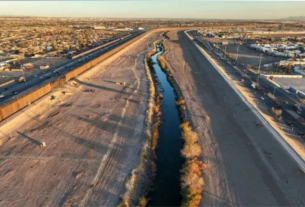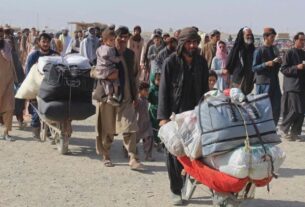Myanmar’s military leader, Senior General Min Aung Hlaing, arrived in Moscow on March 3, 2025, to hold talks with Russian officials. The visit comes as Myanmar’s ruling junta seeks stronger ties with Russia amid growing international isolation. Russia has been one of Myanmar’s closest allies since the military took power in a 2021 coup.
The two countries have expanded defense cooperation, with Myanmar purchasing Russian weapons and military equipment. The visit highlights Moscow’s continued support for Myanmar despite global condemnation of the junta’s human rights abuses. The meetings will focus on military assistance, economic partnerships, and diplomatic coordination.
“Myanmar values Russia’s unwavering support,” a military spokesperson said. The junta has relied on Russian arms to suppress domestic resistance. Russian-made fighter jets and helicopters have been used in military operations against opposition groups. Moscow has also provided technical training to Myanmar’s armed forces. Defense cooperation remains central to the partnership, with both governments committed to deepening military ties.
Economic cooperation has also expanded. Russia has invested in Myanmar’s energy and mining sectors, seeking new markets amid Western sanctions. Myanmar is looking to boost trade with Russia as its economy struggles under international restrictions. The junta has encouraged Russian businesses to invest in infrastructure and technology projects. Energy deals, including oil and gas imports, are also under discussion.
“Russia is a reliable partner in difficult times,” a Myanmar official stated. Moscow has provided diplomatic cover for the junta at the United Nations. Russia has blocked resolutions condemning Myanmar’s human rights violations. The Kremlin has framed the conflict as Myanmar’s internal matter, rejecting foreign intervention. The two governments continue to coordinate on global issues, strengthening their political alliance.
Myanmar’s military faces growing resistance from opposition forces. Armed groups have intensified attacks, challenging the junta’s control over key regions. The military has responded with airstrikes and ground offensives, causing civilian casualties. Human rights organizations have accused the junta of committing war crimes. The conflict has displaced hundreds of thousands, worsening the humanitarian crisis.
Regional concerns about Myanmar’s instability are rising. Neighboring countries have urged the junta to engage in peace talks. The Association of Southeast Asian Nations (ASEAN) has struggled to mediate a resolution. The group has imposed limited sanctions but remains divided on further action. Myanmar’s deepening ties with Russia have complicated diplomatic efforts.
Western countries have condemned Russia’s support for the junta. The United States and European Union have imposed sanctions on Myanmar’s military leaders. Additional measures targeting arms sales and financial transactions are under consideration. Russia has dismissed these actions, continuing its cooperation with Myanmar despite international pressure.
The visit marks Min Aung Hlaing’s fourth trip to Russia since the coup. Previous meetings have focused on securing military equipment and economic aid. Russian officials have reiterated their commitment to supporting Myanmar’s government. The latest discussions are expected to reinforce the strategic partnership.
Russia’s involvement in Myanmar reflects its broader geopolitical ambitions. Moscow has strengthened ties with authoritarian governments facing Western sanctions. The partnership with Myanmar aligns with Russia’s efforts to expand its influence in Asia. Both governments benefit from mutual support in the face of diplomatic isolation.
Myanmar’s crisis shows no signs of ending. The military remains determined to crush opposition forces. Resistance groups continue to challenge the junta’s rule. International efforts to resolve the conflict have stalled. The situation remains volatile, with no clear path to peace.




